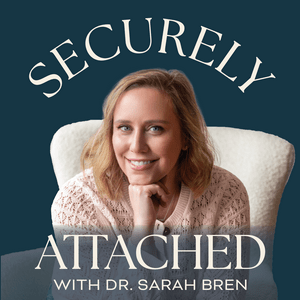Dr. Nancy O'Hara, pediatrician and leading expert in PANS and PANDAS, joins me to unpack why some children experience sudden, dramatic changes in behavior, anxiety, OCD, tics, sleep, or emotional regulation following illness. For many families, these symptoms appear almost overnight and are often misdiagnosed as "just anxiety," behavioral issues, or psychiatric disorders, leaving parents confused, dismissed, and unsure how to help their child.
Together we explore:
What PANS and PANDAS are, and how infections like strep, viruses, or tick-borne illness can trigger sudden neuropsychiatric symptoms in children.
What to assess to help you determine if your child has a generalized anxiety disorder or if it may be PANS/PANDAS that is the root cause of their symptoms.
Why PANS/PANDAS is often missed or misunderstood in both medical and mental health settings.
The three-pronged approach to treatment: Addressing the trigger, the immune system, and the child's emotional and behavioral symptoms.
How therapy, both for parents and children, can support recovery, even when symptoms have a medical origin.
Understanding that there is real hope for healing and that it's never too late to identify and address PANS or PANDAS.
This episode is designed to help parents and clinicians feel more informed, less alone, and more confident in recognizing when a child's behavior may be signaling something deeper. PANS and PANDAS are real, treatable conditions that deserve compassionate, comprehensive care.
LEARN MORE ABOUT MY GUEST:
🔗Dr. Nancy O'Hara
📚Demystifying PANS/PANDAS: A Functional Medicine Desktop Reference on Basal Ganglia Encephalitis
🎧 Demystifying PANS/PANDAS Podcast
FOLLOW US ON SOCIAL MEDIA:
📱IG: @nhoharamd FB: Nancy O'Hara MD, MPH, FAAP
📱IG: @drsarahbren
ADDITIONAL REFERENCES AND RESOURCES:
👉 Looking for support for a child struggling with anxiety or OCD? If your child is struggling with anxiety or OCD, Upshur Bren Psychology Group offers SPACE-based parent support through both a virtual group and individualized care. Go to upshurbren.com/space to learn more or book a free 30-minute consultation with our care team, who will listen carefully and help you determine the best support for your family.
🔗 Dr. O'Hara's mentor, Sidney M. Baker, MD
🔗 Susan Swedo, MD, who created the acronym and coined the terms of PANS and PANDAS
📚 Super Sam and the Battle Against PANS/PANDAS by Dr. Lindsey Wells
🔗 Practitioner directories and community support: Aspire and Look Foundation
🔗 For practitioners: PANDAS Physicians Network
🔗 A helpful resource you can bring to your pediatrician: The Journal of the American Academy of Child & Adolescent Psychiatry - February 2017
📚 The Comprehensive Physicians' Guide to the Management of PANS and PANDAS: An Evidence-Based Approach to Diagnosis, Testing, and Effective Treatment by Dr. Scott Antoine
🔗 Autism and PANS PANDAS
🔗 The Medical Academy of Pediatrics and Special Needs
🔗 Ilads
🔗 Psychiatry Redefined
CHECK OUT ADDITIONAL PODCAST EPISODES YOU MAY LIKE:
🎧 Listen to my podcast episode about how mold, Lyme, pesticides, and other toxins may be impacting your child's physical and mental health with integrative pediatrician Dr. Pejman Katiraei
🎧 Listen to my podcast episode about how to handle potty regressions in your older child?
🎧 Listen to my podcast episode about how Supportive Parenting for Anxious Childhood Emotions (SPACE) can be an effective treatment for childhood anxiety and OCD
🎧 Listen to my podcast episode about how to help autistic kids build joy, confidence, and connection with Dr. Peter Vermeulen


